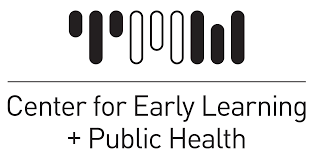Faculty Projects


Network for College Success
Founded in 2006 by Committee on Education faculty member Melissa Roderick, the NCS is a voluntary network providing professional development to school principals in the Chicago Public Schools, communicating the findings of empirical research on school leadership and college readiness to school administrators so that they can better integrate evidence-based practices into their programs for school improvement.
For more information on this project, click here.

Spatial Intelligence and Learning Center
The Spatial Intelligence and Learning Center (SILC), an initiative spearheaded by COE members Susan Levine and Susan Goldin-Meadow, is a program that brings together scientists and educators from many different institutions to pursue the overarching goals of understanding spatial learning and using this knowledge to develop programs and technologies that will transform educational practice, helping learners to develop the skills required to compete in a global economy.
For more information on this project, click here.

Language Development Project
The Language Development Project, a longitudinal study initiated by COE members Susan Levine and Susan Goldin-Meadow and funded from the National Institute of Child Health and Human Development, explores the extent and the limits of the language-learning process in young children. The study examines children’s use of gesture during language learning during the elementary school years, as well as using fMRI techniques to assess the brain bases of language and reading competence.
For more information on this project, click here.
Evaluating Implementation of Common Core and Next Generation Science Standards Changes in Classroom Instruction and Student Achievement
The Institute of Educational Sciences has recently funded a research project by COE Faculty member Elaine Allensworth which endeavors to examine the relative success of various methods used in the Chicago Public Schools to implement Common Core and Next Generation Science Standards. Honing in on indicators including student achievement and equity of student achievement, Dr. Allensworth is endeavoring to gain insights into which methods for curriculum implementation are most effective so that school and district leaders can make research-informed decisions in pursuit of the meeting the goals of CCSS and NGSS
For more information on this project, click here.

TMW Center
COE Faculty Members Dana Suskind and John List are co-directors of the TMW Center for Early Learning + Public Health, a joint venture between the University’s Biological Sciences and Social Sciences Divisions. The goal of the TMW Center is to create a population-level shift in knowledge and behavior of parents and caregivers in order to optimize the foundational brain development in all children, particularly among those growing up in low-income households. TMW develops evidence-based interventions that enable parents, caregivers, practitioners, and researchers to impact foundational brain development and address early cognitive disparities which have been found to have lifelong effects particularly among children born into poverty. To date, TMW programs have reached over 3,000 families in the Chicagoland area, with early results indicating an increase in caregivers’ knowledge and behaviors that utilize language to support young children’s brain development. Many more cities and municipalities have expressed interest in launching TMW interventions.
For more information on this project, click here.

Getting on Track Early for School Success
COE Chair Stephen Raudenbush recently completed work on an initiative intended to clarify instructional goals for early language, mathematics, and academic development in preschool settings, by providing teachers with frequent, objective, accurate and valid assessments of children’s skills in these domains,

From the Classroom to the Lab and Back
COE Chair Stephen Raudenbush was Principal Investigator in a collaboration between researchers, practitioners and curriculum developers to develop, validate, and disseminate instructional strategies that advance the early math skills of 3 to 5 year old preschool children, particularly those from low-socioeconomic backgrounds. The project sought to clarify instructional goals for early mathematics development in preschool settings. Together, project researchers, practitioners, and curriculum developers built instructional strategies for teaching preschoolers fundamental numerical and spatial skills and testing these strategies in the lab and classroom settings.
